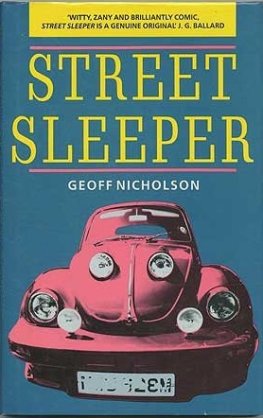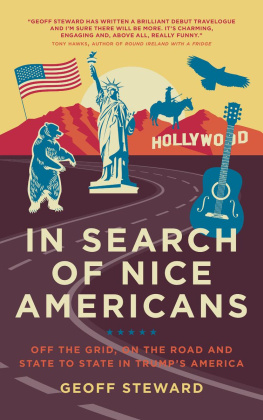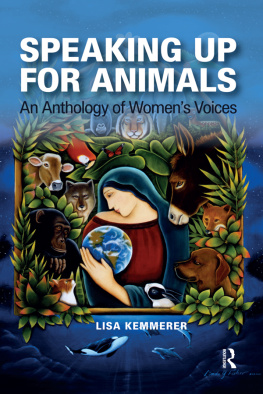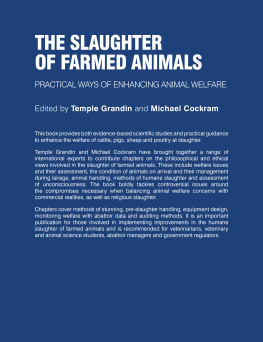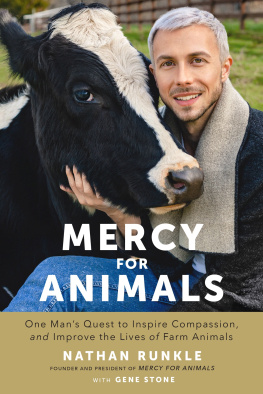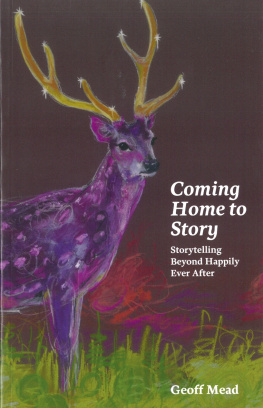Geoff Simm - Genetic Improvement of Farmed Animals
Here you can read online Geoff Simm - Genetic Improvement of Farmed Animals full text of the book (entire story) in english for free. Download pdf and epub, get meaning, cover and reviews about this ebook. year: 2020, publisher: CABI, genre: Children. Description of the work, (preface) as well as reviews are available. Best literature library LitArk.com created for fans of good reading and offers a wide selection of genres:
Romance novel
Science fiction
Adventure
Detective
Science
History
Home and family
Prose
Art
Politics
Computer
Non-fiction
Religion
Business
Children
Humor
Choose a favorite category and find really read worthwhile books. Enjoy immersion in the world of imagination, feel the emotions of the characters or learn something new for yourself, make an fascinating discovery.

- Book:Genetic Improvement of Farmed Animals
- Author:
- Publisher:CABI
- Genre:
- Year:2020
- Rating:5 / 5
- Favourites:Add to favourites
- Your mark:
- 100
- 1
- 2
- 3
- 4
- 5
Genetic Improvement of Farmed Animals: summary, description and annotation
We offer to read an annotation, description, summary or preface (depends on what the author of the book "Genetic Improvement of Farmed Animals" wrote himself). If you haven't found the necessary information about the book — write in the comments, we will try to find it.
Genetic Improvement of Farmed Animals — read online for free the complete book (whole text) full work
Below is the text of the book, divided by pages. System saving the place of the last page read, allows you to conveniently read the book "Genetic Improvement of Farmed Animals" online for free, without having to search again every time where you left off. Put a bookmark, and you can go to the page where you finished reading at any time.
Font size:
Interval:
Bookmark:
Genetic Improvement of Farmed Animals
Genetic Improvement of Farmed Animals
Geoff Simm
University of Edinburgh, UK
Geoff Pollott
Royal Veterinary College, London, UK
Raphael Mrode
Scotlands Rural College, Edinburgh, UK
and
International Livestock Research Institute, Nairobi, Kenya
Ross Houston
The Roslin Institute, University of Edinburgh, UK
Karen Marshall
International Livestock Research Institute, Nairobi, Kenya

CABI is a trading name of CAB International
CABI | CABI |
Nosworthy Way | 745 Atlantic Avenue |
Wallingford | 8th Floor |
Oxfordshire OX10 8DE | Boston, MA 02111 |
UK | USA |
Tel: +44 (0)1491 832111 | Tel: +1 (617)682-9015 |
Fax: +44 (0)1491 833508 | E-mail: |
E-mail: | |
Website: www.cabi.org |
Geoff Simm, Geoff Pollott, Raphael Mrode, Ross Houston and Karen Marshall 2021. All rights reserved. No part of this publication may be reproduced in any form or by any means, electronically, mechanically, by photocopying, recording or otherwise, without the prior permission of the copyright owners.
References to Internet websites (URLs) were accurate at the time of writing.
A catalogue record for this book is available from the British Library, London, UK.
Library of Congress Cataloging-in-Publication Data
Names: Simm, Geoff, 1959- author. | Pollott, Geoffrey, author. | Mrode, R. A., author. | Houston, Ross, author. | Marshall, Karen, author.
Title: Genetic improvement of farmed animals / Geoff Simm, Global Academy of Agriculture and Food Security, University of Edinburgh, UK, Geoff Pollott, Royal Veterinary College, London, UK, Raphael Mrode, Scotlands Rural College, Edinburgh, UK, and International Livestock Research Institute, Nairobi, Kenya, Ross Houston, The Roslin Institute, University of Edinburgh, UK, Karen Marshall, International Livestock Research Institute, Nairobi, Kenya.
Description: Wallingford, Oxfordshire, UK ; Boston, MA : CABI, [2020] | Includes bibliographical references and index. | Summary: Comprehensive, yet concise and approachable, Genetic Improvement of Farmed Animals provides a thorough grounding in the basic sciences underpinning current farmed animal breeding practice. The text relates science to practical application in all the major farmed animal species: cattle, sheep, goats, poultry, pigs and fish--Provided by publisher.
Identifiers: LCCN 2019054983 (print) | LCCN 2019054984 (ebook) | ISBN 9781789241723 (hardback) | ISBN 9781789241716 (paperback) | ISBN 9781789241730 (ebook) | ISBN 9781789241747 (epub)
Subjects: LCSH: Livestock--Genetic engineering. | Livestock improvement.
Classification: LCC SF756.5 .S56 2020 (print) | LCC SF756.5 (ebook) | DDC 636.08/21--dc23
LC record available at https://lccn.loc.gov/2019054983
LC ebook record available at https://lccn.loc.gov/2019054984
ISBN-13:
9781789241723 (hardback)
9781789241716 (paperback)
9781789241730 (ePDF)
9781789241747 (ePub)
Commissioning Editor: Alexandra Lainsbury
Editorial Assistant: Lauren Davies
Production Editor: Tim Kapp
Typeset by SPi, Pondicherry, India
Printed and bound in the UK by Severn, Gloucester
Contents
The online resources referred to in the text can be found at: www.cabi.org/openresources/41723

Animal breeding has a long history, probably as long as domestication itself. Well before the current knowledge of genetics, people understood the importance of choosing the best animals to become parents and of avoiding unhealthy and aggressive animals. Darwin was fully aware of the achievements of animal breeders and used breeding of fancy pigeons as an analogy of natural selection. He even started breeding and crossing pigeons himself in his garden. It is also clear that breeding, moving hand-in-hand with major changes in both feeding and management, especially in the past half century or so, has had an enormous impact on animal production, leading to higher production efficiency and lower prices for the consumer.
Although the principles of breeding are easy to grasp, modern animal breeding methodology is anything but. For most important traits, there is continuous variation among animals and they generally do not fall into a few easily separated classes. Even if they do, for example, healthy and sick animals, the underlying reason is normally not a single malfunctioning gene. It is increasingly clear that most traits are affected by many genes and also by environmental factors. The task is no longer selecting the best animals to become parents, based on their own performance, but selecting as parents those animals that give the best progeny.
To resolve this, we need to collect large amounts of data on phenotypes and sometimes genotypes of farmed animal populations. To utilize these data sets we require sophisticated statistical methods, combined with well-designed software and substantial computing power. This makes learning animal breeding difficult for students, and also difficult for teachers, I might add. Although the underlying theory and methods are the same for all species, the structure of the industry and the animal populations, economic conditions, biological constraints and actual applications differ markedly between farmed animal species. Learning the theory without connecting it to real-life situations is not a recipe for success, especially not within agricultural sciences.
Therefore, it is with great pleasure I welcome the book on Genetic Improvement of Farmed Animals, by Geoff Simm, Geoff Pollott, Raphael Mrode, Ross Houston and Karen Marshall. This is an extensively updated and expanded edition of the previous book by Simm, which focused on cattle and sheep. Now there are completely new sections on poultry, pig, aquaculture and goat breeding. There is also new information on estimation of genetic variation and methods for phenotype recording, and chapters have been updated with the latest knowledge related to genomic evaluations. The book ends with an interesting discussion of the sustainability dimension of livestock production. So, in short, I am convinced that this book will make the lives of teachers and their students much easier!
Erling Strandberg
Professor of Animal Breeding and Genetics
Swedish University of Agricultural Sciences, Uppsala
For over 10,000 years the fortunes of the human race have been closely intertwined with the husbandry of livestock. For much of this time, whether knowingly or unknowingly, livestock have been changed genetically by subjective means. Some of the scientific foundations for more objective genetic improvement methods were laid over 120 years ago, and others followed from the 1900s to the 1930s. However, it is only over the past 70 years or so that these have been applied to any great extent in livestock improvement. These objective methods are based on measurement of performance in economically important traits. To date they have been used most widely in pig, poultry and dairy cattle breeding, and to a lesser extent in beef cattle, sheep, goat and fish breeding. They have been used widely in industrialized countries, and much less so in lower-income countries.
Next pageFont size:
Interval:
Bookmark:
Similar books «Genetic Improvement of Farmed Animals»
Look at similar books to Genetic Improvement of Farmed Animals. We have selected literature similar in name and meaning in the hope of providing readers with more options to find new, interesting, not yet read works.
Discussion, reviews of the book Genetic Improvement of Farmed Animals and just readers' own opinions. Leave your comments, write what you think about the work, its meaning or the main characters. Specify what exactly you liked and what you didn't like, and why you think so.

